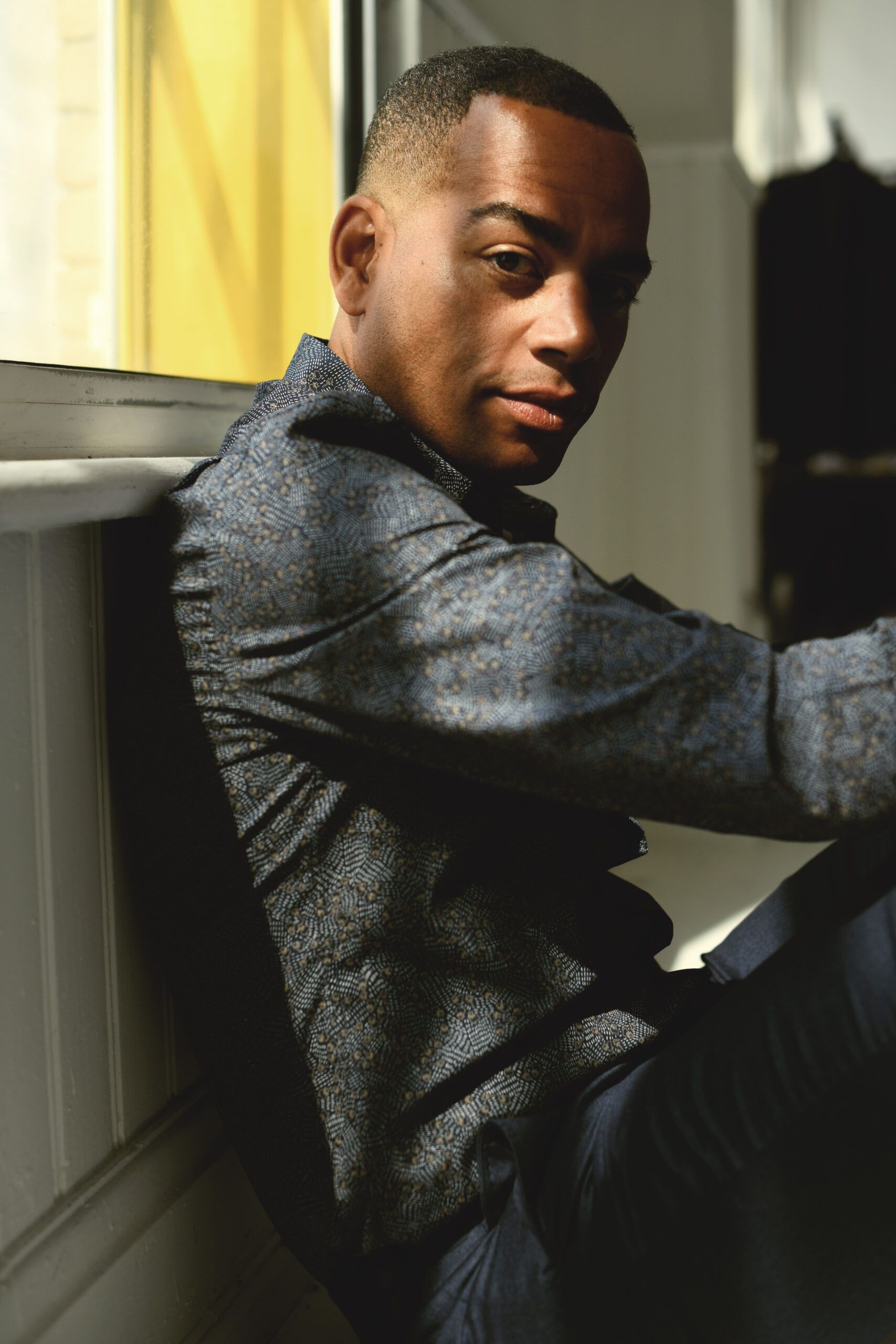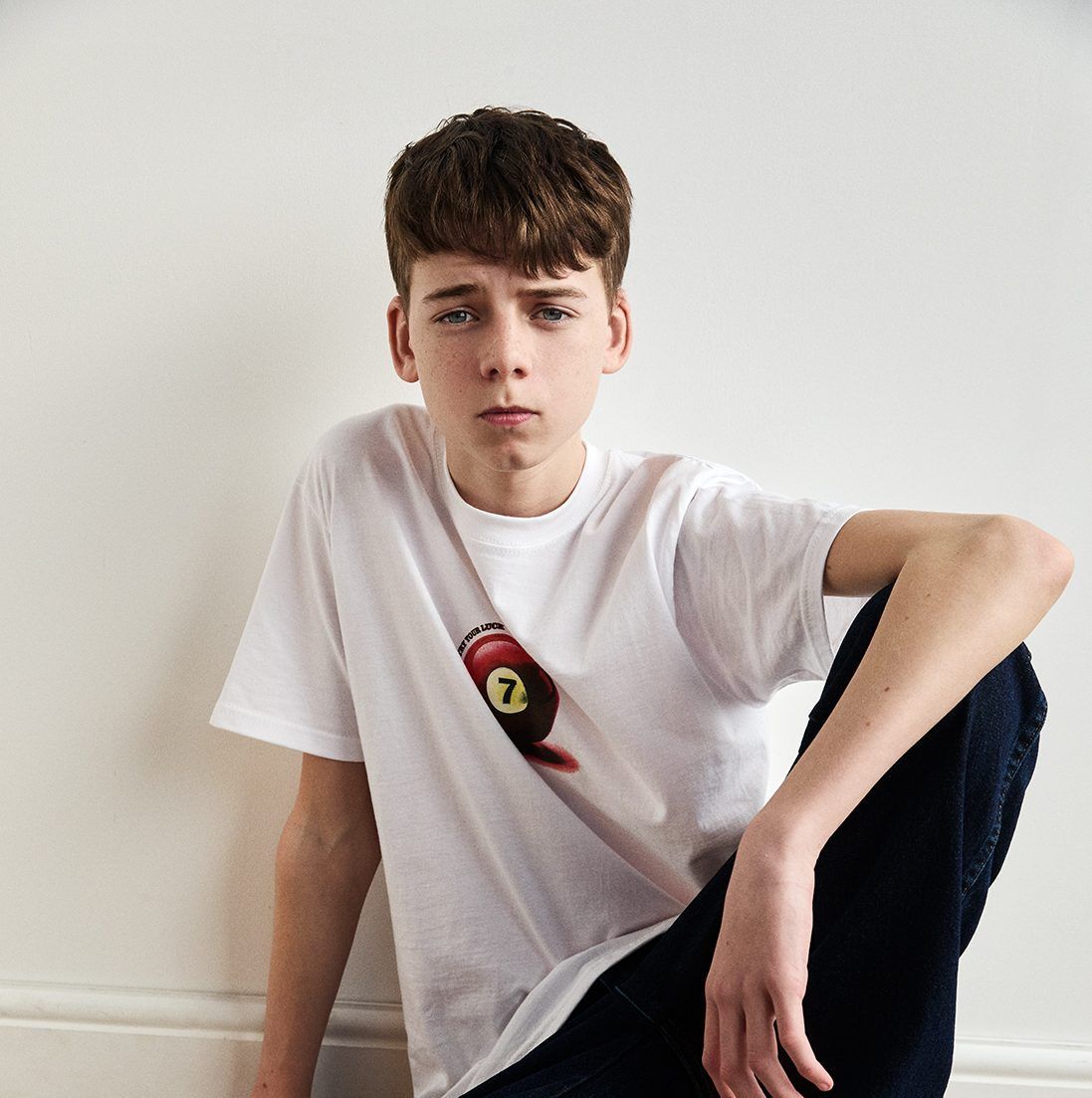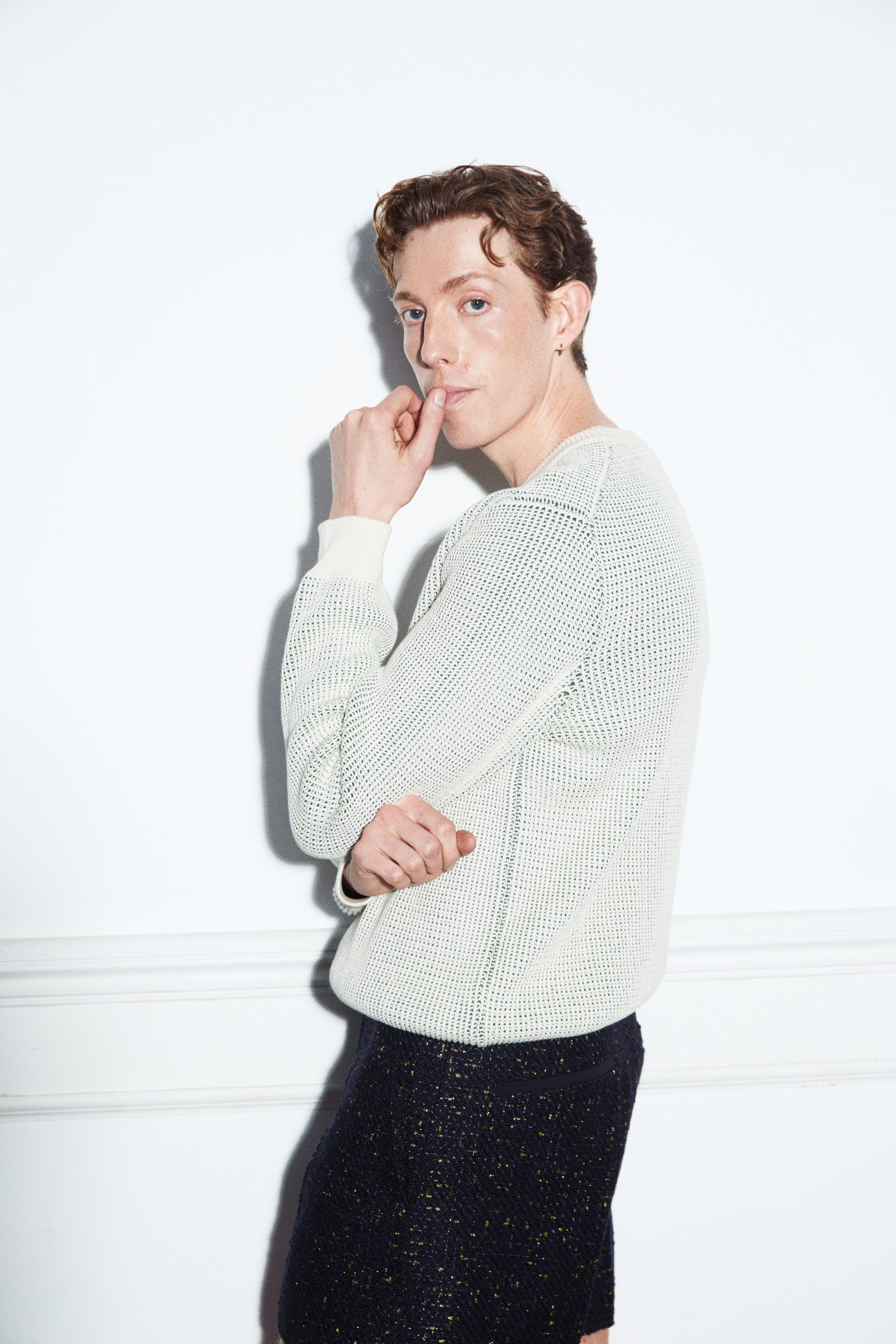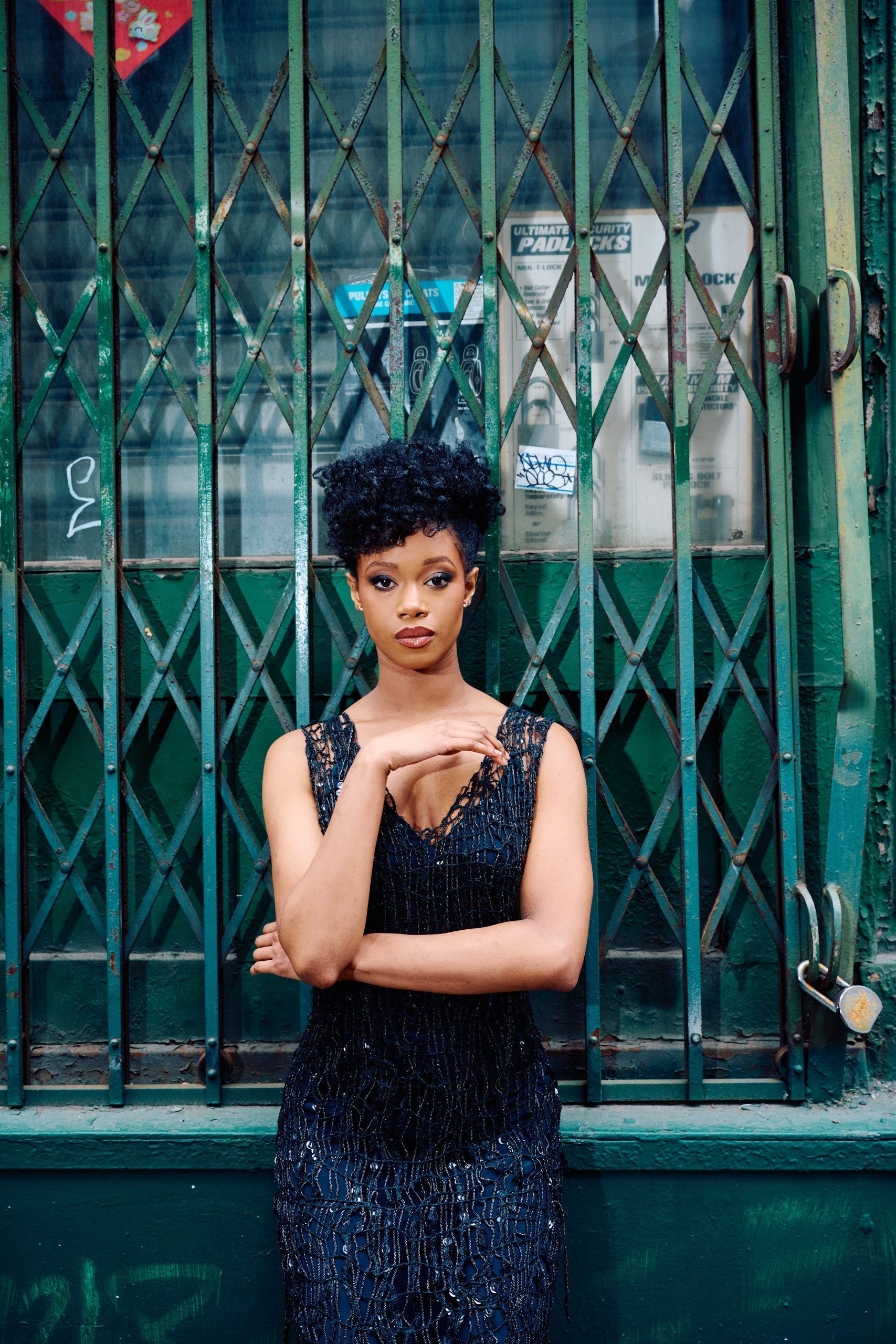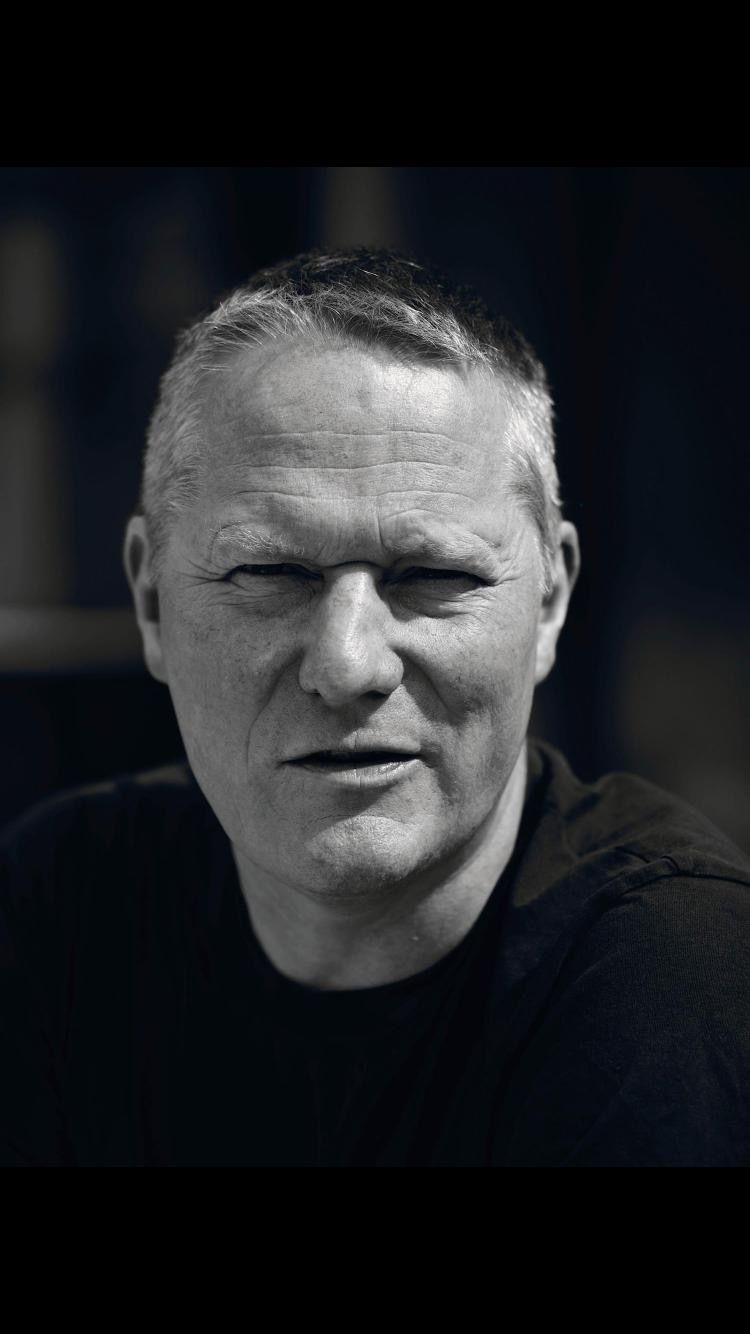After starting a career as an underground rapper and comedian, Ben Bailey Smith is reaching new heights as an actor in a slew of esteemed projects.
Although many musicians have dived into the world of film in the past, not many have done it with such ease and obvious talent as actor Ben Bailey Smith. So far, he’s established himself as a force across TV and film, starring in projects like Derek, The Split, and Des. Now, he’s entering two distinctly, yet celebrated, worlds when he jumps into the classic story of Persuasion in the much-anticipated Netflix film and Jane Austin adaptation and the next saga of the Star Wars franchise for Andor.
1883 Magazine chats with Ben Bailey Smith to discuss his career so far, his techniques as an actor, his upcoming projects, and more.
Your first credit was back in 2009 when you played a waiter on Miranda. When you think back between then and now, how would you describe your growth as an actor?
I’d say the most profound development is the ability to keep calm and relaxed enough to really feel what the character is supposed to be feeling, and to really listen to what the other characters in the scene are saying and feeling as well. Once I got over the nerves of having a camera in my face, with time I’ve been able to somehow make the camera disappear from my peripheral and lose myself in the moment with the other actors. I guess you could say the main thing I’ve learnt about how to act is not to act, just be alive, be present. In another sense you could argue I’ve not grown at all since Miranda because that was the last year actors got residuals from appearances, so believe it or not, for that single line – “phone call for you, Madam” I still get paid to this day. So technically I actually peaked in 09.
With a background in music as well, how has your work as an artist informed your work as an actor?
It’s twofold for me: physicality and diction. Performing music for so many years gave me an innate sense of how to engage an audience. I would always be up there, right on the edge of the stage so I could see the whites of the crowd’s eyes, making sure I wasn’t losing anyone. Physically a commanding presence was essential, and vocally I’d also ensure that they could hear every word, again trying to guarantee there was no lull, that they were with me. I’d try to be electric and magnetic to keep them focussed and interested. These were priceless transitional skills to take into the acting world.
For some musicians, transitioning from music to TV/film can be difficult and vice versa is difficult because not everyone takes you seriously. Was this something you struggled with or faced at all?
Not at all with music – but that was probably because I was never a successful musician so no one knew or cared, which was fine by me! I had way more barriers coming from a successful stand up career. I only got offered comic roles for ages, which eventually worked in my favour because I genuinely believe being funny and real on camera is harder than being straight and real. So comedies like Rev, The Inbetweeners, Derek – they all provided me with a chance to practice being believable whilst being funny, which laid the foundations for dramatic performance. All that said, in 13 years I’ve only had three auditions for theatre – didn’t get any of them. It’s ironic I’ve been on every stage in the UK at some point, doing live comedy, but I’ve never set foot in any of them to do a play. The first question I get asked in the theatre world is “where did you train?” and “the university of life” never seems to be the answer they’re looking for. But I also believe you get what you work for – TV and Film are my lifelong passions, so that’s all I’ve worked towards for years. The only time I even went to the theatre was if my school forced me as a kid so I guess the universe just sorts these things out sometimes.
I’d love to hear about how you approach imagination while on set — do you make suggestions or try to be collaborative while filming?
It depends on the “vibe” if that’s not too gross a word. Like, when I first worked with the director Lewis Arnold, he would constantly come hang out and talk about the character or encourage me to improvise on camera – he created a warm and open atmosphere where it felt like anyone could throw in an idea. If you look at his work it’s very visceral and emotional and I’m certain a lot of that is down to the connections he makes with his cast. I’m still friends with him 5 years after our first job together which speaks volumes I think.
Conversely, sometimes the vibe on set is one of just getting your heads down and getting the coverage – very business-like – watching the clock, watching the money, and there’s no time to dick about or take risks. But dicking about is kind of why I act – to me it’s Play and I love to play. I’ve never lost that childlike desire to muck around and play imaginary games so when I am able to do that professionally, that is often when I give my best performances. But the atmosphere has to be right for that. I spoke to Hans Zimmer once about a quote he referenced that I live my life by- he said a child of an artist said to their parent, “I wanna be an artist when I grow up!” The parent replied “you can’t do both.”
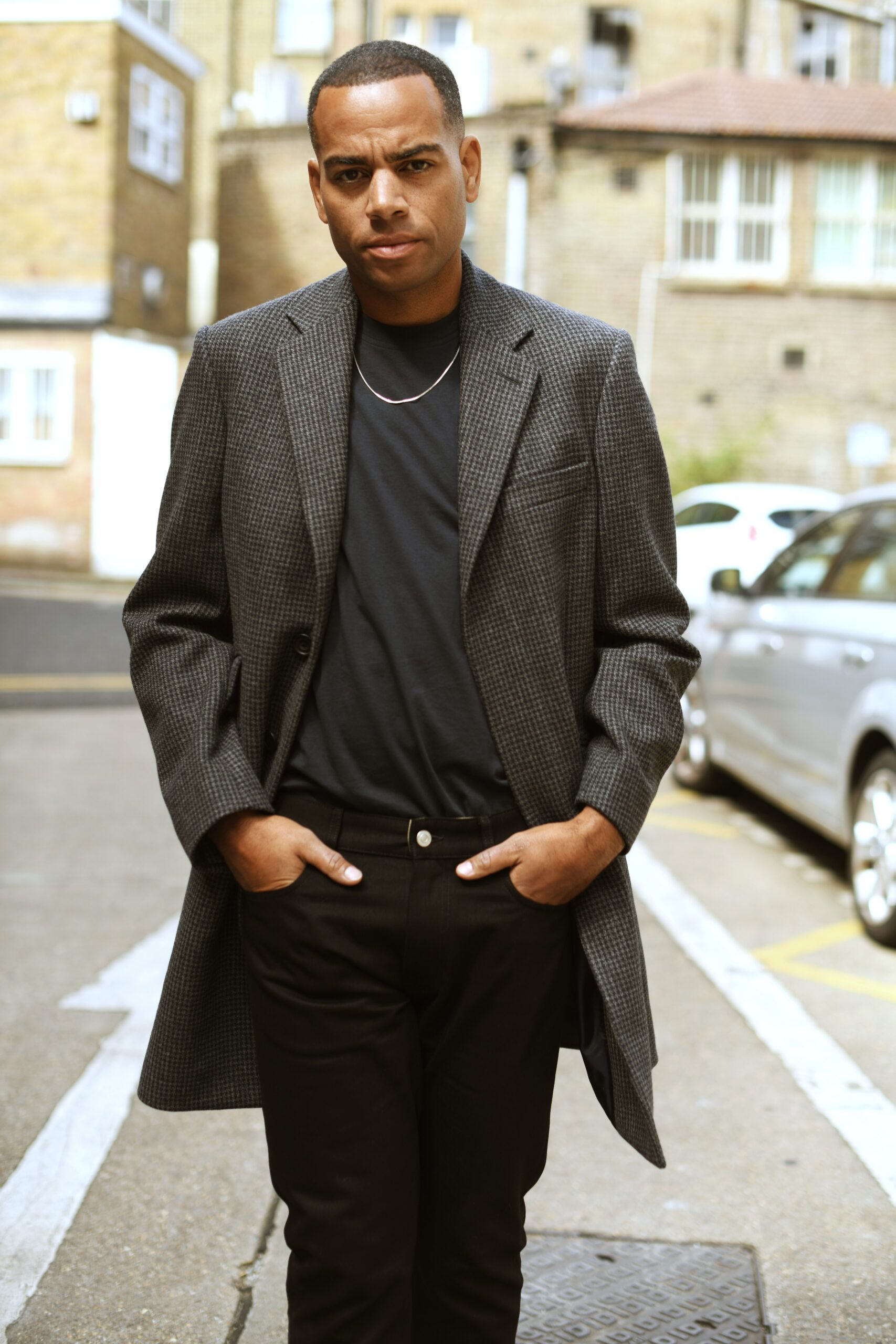
Let’s chat about Persuasion. You play Charles Musgrove in an adaptation that is loosely modernised. What were your initial thoughts on the show when you read the script?
Not just saying this in case Uncle Netflix is reading – I genuinely thought it was laugh out loud funny. Which surprised me because I didn’t remember the book being that funny. I was slightly concerned about the 4th wall breaks being too derivative of Fleabag but actually it works as a nod to Austen herself, who was the original queen of the snide aside.
Although Charles is described and documented in the original book, was there anything you read or watched to flesh out his character further? In addition to that, how do you as an actor avoid getting caught up in previous portrayals of a specific character?
I purposely didn’t watch any other adaptations, just read the book. Everything you need is there which is a rare treat for actors – we usually just get a line: “kind and well-meaning” or “dark and brooding”.
What do you think Jane Austen fans will love more about this adaptation of Persuasion?
I think they’ll appreciate how true we are to the settings – all the locations are exactly as in the book and the costume detail is mind blowing.
Is there a scene in particular that sticks out to you while filming?
So many. I had the best time shooting this movie. It was the most fun I’ve had on set since Ricky’s movie back in 2016. So every scene I shot has kind of stayed with me. One that really sticks out was when England were playing Germany in the Euros and we all (especially me) struggled to contain our excitement on set – we obviously couldn’t watch it so were running around like mad trying to get updates between takes. There was even a point during a take where I heard someone somewhere in the crew shout YES! In any other situation that just would have been unforgivable and annoying but it was such a uniquely emotional moment for all the England fans on the job that all we could do is laugh, knowing that we must’ve scored.
Although I know we can’t talk too much about your role as Blevin in Andor, what does it mean for you to be taking part in a franchise like Star Wars?
It’s really hard to express how emotional I felt when I got this job. The audition was just for a sergeant major chewing out his troops in a military action drama. It had a fake name and everything so I had no idea it was Star Wars til I got the call months later. Return of the Jedi was the first film I ever saw in the cinema – I was 5 years old. After that, I wanted to live on Endor, run around with Ewoks and fly those space bikes through forests. And Vader was my hero. I was an Empire guy. I have photos of me dressed as Vader when I was 6, with all my Empire toys. Vader was my first black hero. Then when I found out he was actually voiced by a black guy I was just in awe. Star Wars represents the very first spark that made me fascinated by the magic of cinema. When I was waiting to board a spaceship to shoot my first scene as an actual Imperial Officer the pride I felt was immeasurable. I was wearing my own socks embroidered with Imperial villains – Maul, Vader, Ren etc – just as an in joke to myself. And when I was called to set, I walked along humming the Imperial March.
Andor has quite the cast. How was filming the project?
Actually really intense. No room for error. Also it was at the height of Covid so it was really quite stressful. Plus the unbelievable secrecy around everything – it was hard to relax or switch off – everyone had to be on it all the time.
When you get a script, what excites you most about the project? Is it the writing, who is attached to it, or something else?
Always always ALWAYS the writing. I’m a writer myself so I’m a pretty harsh critic. My heart sinks when I read something and think – NO HUMAN BEINGS TALK LIKE THIS. I’m always surprised by just how much utter garbage is out there, so when I get a script that flows beautifully, feels emotive and real and sparkles with intelligence and humanity – it’s a really exciting moment. What I find fascinating is I will struggle to memorise and perform a shit line that’s only a ten word sentence, but I can turn around a brilliant written two page monologue ten times quicker.
Since Persuasion and Andor come out quite soon after one another, do you think your two characters would get along at all?
Hahaha Blevin would kill Charles almost instantly.
Lastly, if you could manifest something for yourself this year what would it be?
To voice a Pixar movie. I’ve dreamt of it since Toy Story.
Persuasion is streaming now on Netflix.
Interview Kelsey Barnes
Photography Kenneth Lam

